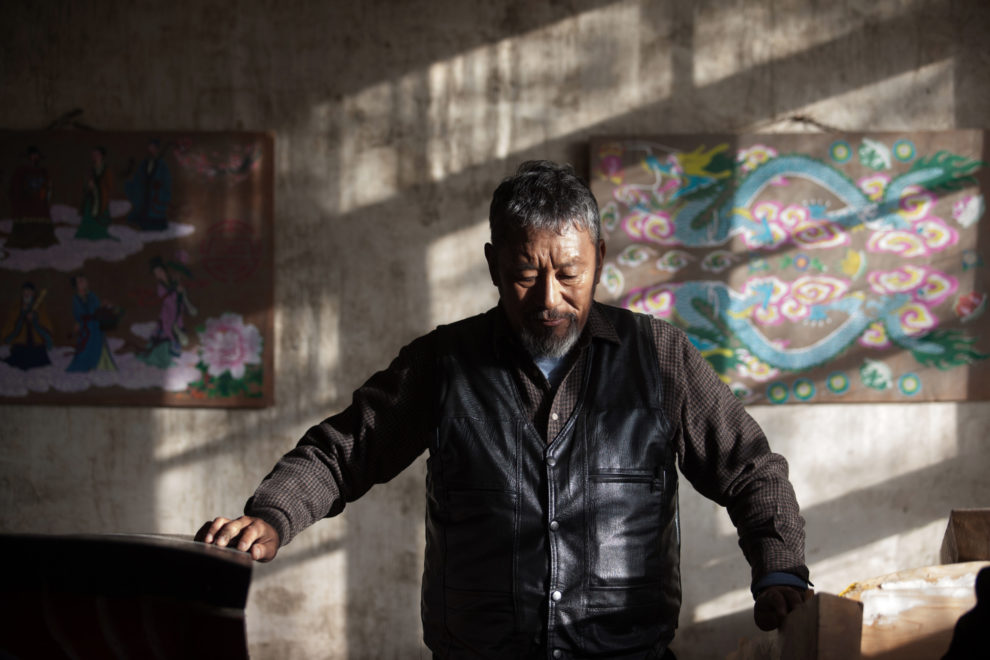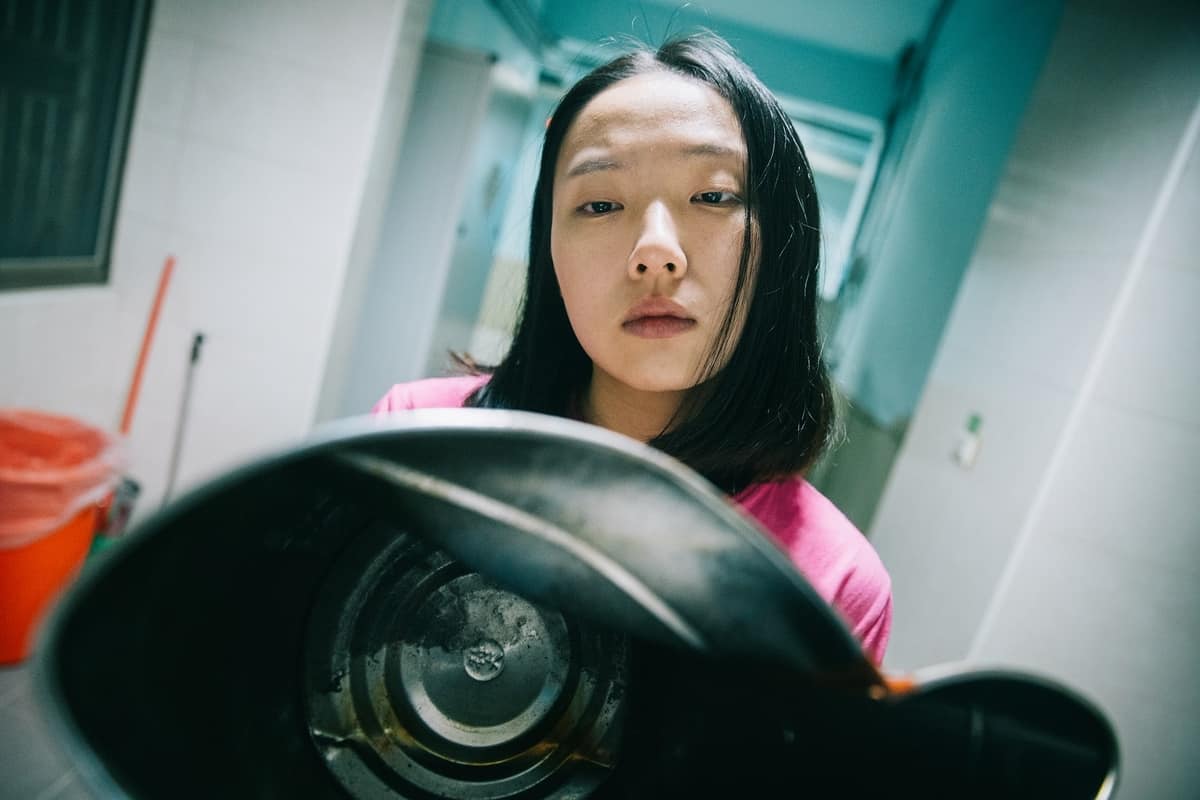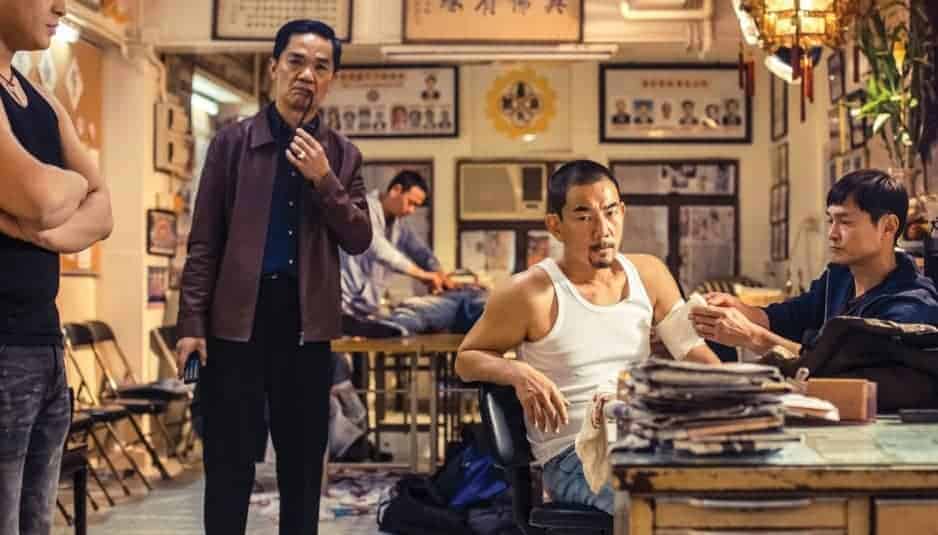The majority of the Chinese Mainland films that screen in festivals are rather bleak, both in their main subject and in their overall presentation. Da Fei, although not straying completely away from this path, tries to tone it down a bit by including some elements of European cinema in his narrative. Let us see how this whole thing works.
“The Coffin Painter” screened at Vesoul International Film Festival of Asian Cinemas

Jia is a rather lonely man who lives by himself, painting coffins for the few elderly who still desire not to be cremated. Through flashbacks, though, we also learn that the reason for his loneliness is his son's death, an event he seems to accuse himself for. One day, a young girl, Seven, arrives in the same courtyard he lives in with her mother, as they try to avoid the loan sharks that are on their heels. The woman works as a hostess, and the girl essentially grows up by herself, with the only interaction she has with her mother being through fighting. When she starts getting bullied in school, Jia decides to help her, thinking that life has given him a second chance. Things, however, are much more complicated than he anticipated.
Da Fei directs a film that makes a number of very interesting comments, particularly regarding the difficulties of raising children in current times, especially for single parents. The fact that the grown ups find themselves lost somewhere between trying to make money and finding time to understand and teach their children, becomes one of the central comments here, as much as their failure in both aspects essentially. Da Fei does not take sides exactly, seemingly blaming something that remains vague, in a question though, of if children are born or made in certain ways, being quite difficult to give an answer to.

The concept of loneliness is also a central one, with the way Jia eventually warms up to the girl, highlighting the fact that people who suffer from it just need a nudge on occasion, while the comment on school bullying is examined even more deeply, through the prism of ‘crime and punishment'. In probably the most entertaining aspect of the movie, Da Fei also comments on the concept of male bonding, and how, sometimes, violence can be the source of an eventual friendship, in a comment that is quite realistic actually.
Although the overall context is appealing in a number of ways, the presentation somewhat lacks. The melodramatic elements are too intense on occasion, with the train scene for example bordering on being cheesy, while the reliefs mentioned in the project, end up being too “Amelie”, with the scene with the change of clothes and the red painted truck essentially looking out of context. The same applies to the way the two protagonists eventually ‘heal' each other, which ends up being somewhat unconvincing, ‘easy; if you prefer. The filmmaker's wish to lighten the tone is welcome, but the way he approaches these subjects is not exactly ideal.
On the other hand, there is nothing wrong with any of the other aspects of the movie. Lopsang is quite convincing in the portrayal of a powerful but broken man, and his transformation is handled with realism. Tang Lai Kwong's cinematography is beautiful on occasion, particularly in the way he uses windows to present some of his frames, while Wang Yuye and Yuan Ze's editing implements a relatively fast pace that works quite well for the narrative, and the various flashbacks are well-placed.
Essentially, there is no particular fault in “The Coffin Painter”, apart from the melodramatic moments, and the truth is, the movie is quite easy to watch. At the same time, however, there is nothing special about it either…















